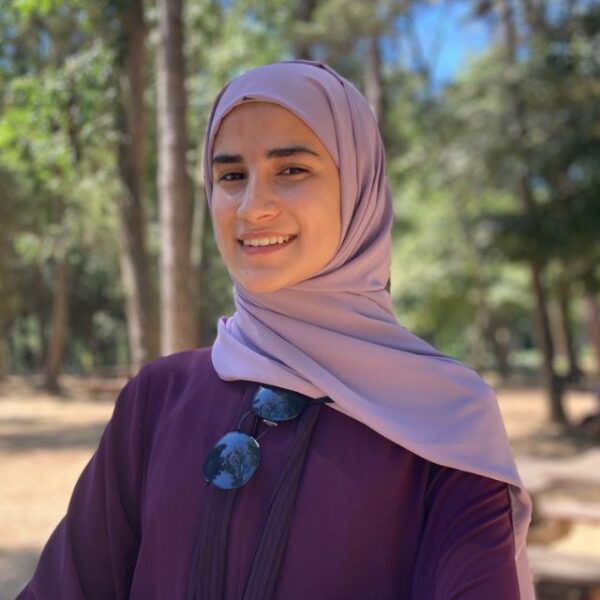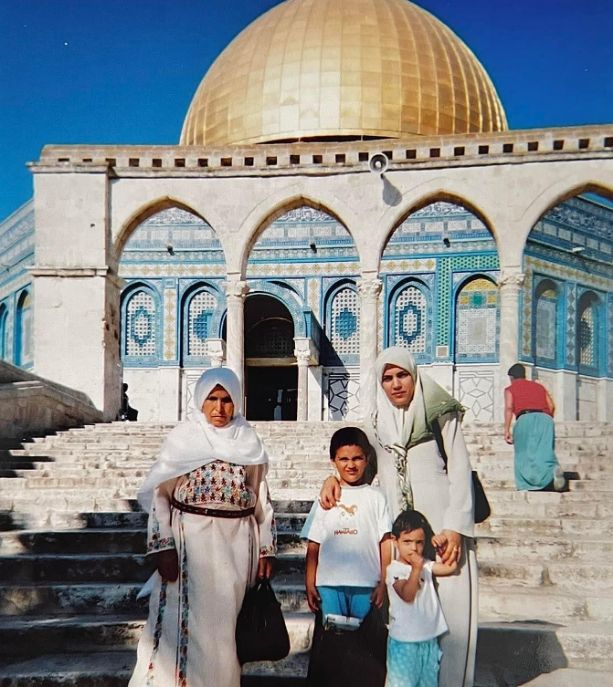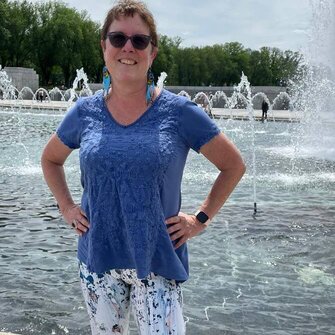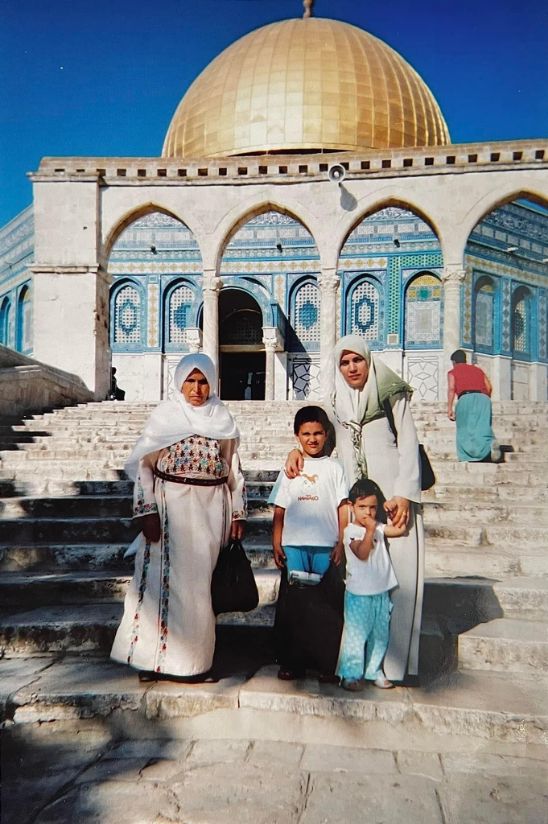
After summer holidays, Jinan Hannoun and her friends often gather after classes in Geneva, Italy, and talk about who they had met and where they had stayed. “My friends tell me how boring staying at their grandparents’ house is, and I listen to them with wonder,” Jinan says wistfully. “I wish I could see my own grandma and listen to her stories while I eat the bread everyone raves about. I’ve only seen her in person once, in 2005 — the last time I visited my homeland, Palestine.”
Palestinians who grow up abroad are exposed to a sort of cultural tug-of-war for their identification and loyalty. But what emerged through several interviews as a common thread among them is that they nonetheless feel a strong connection to their ancestral homeland because of family storytelling.
Jinan, for example, was born and raised in Italy by Palestinian parents. Her father first traveled to Italy for his studies and decided to stay. He later married a woman from Palestine and brought her to live with him. Jinan has only been to Palestine once, but her parents share their stories, so it feels like her homeland.
Unlike most refugees and immigrants, it is almost impossible for Palestinians abroad to return to their homeland. Because of the Israeli occupation, most Palestinians are banned from even visiting the land of their parents. However, this only renews their determination to advocate for Palestine through stories.
“My father has vivid memories of his tiny house with a huge garden full of olive trees; mint leaves, with their strong smell, inviting him to drink some tea; and his neighbor’s son, who always knocked on the garden door, calling him to play marbles,” Jinan recounts. “My parents are always telling me that Palestine is not just a cause, it’s the lives of people whose homes and histories were taken from them.”
She has her own twist on the famous quote from Israeli founder David Ben Gurion: “The old may die, but the young will never forget.”
A grandfather’s determination
Roufaida Kunbargi, who grew up in Syria and now makes her home in Albania, agrees. Her paternal grandfather is the only living person in her family who lived in Palestine, but “he has had a huge influence on me, helping me see Palestine as my second homeland. At home, he always spoke with the Palestinian dialect and reminisced about his family’s house in Jaffa, with its huge garden and charming view of the famous sea. My parents were immersed in the Syrian community, but my grandfather was determined to connect us with our Palestinian homeland.”
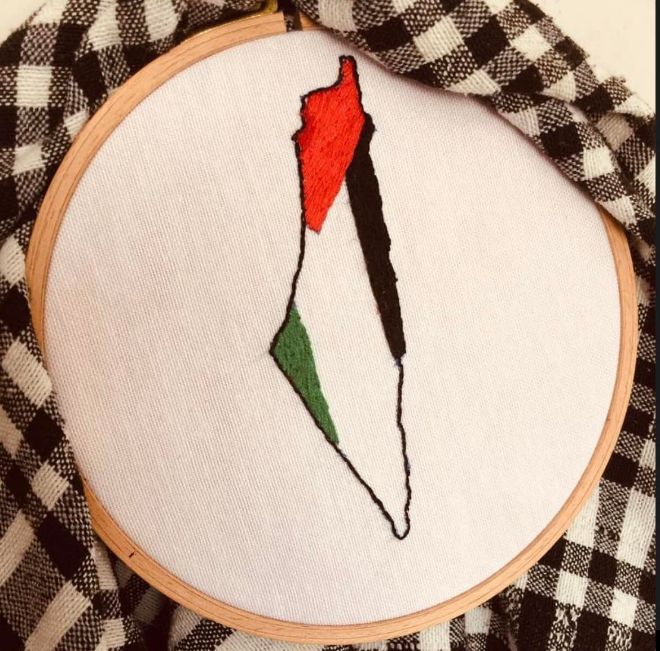
Still, Roufaida’s story illustrates how identification can dissipate when the direct connection to Palestine becomes more distant.
“Palestine wasn’t usually a topic of discussion in our family, but we would always pray for it,” she recalls. “My grandfather, however, was different. Speaking about it was enough to make his eyes water. He was afraid that no one after him would continue telling the Palestinian narrative.”
Sadly, her grandfather passed away a year ago. Still, his influence left an impact. She says his words are “stuck in my mind forever.”
Roufaida showed me her embroidery, saying the first piece she created featured a map of Palestine.
Sharing the real story
When Palestinians try to share what they learn about Palestine with others in the culture in which they are now being raised, they often encounter people who have no awareness of the violations committed against their relatives in their homeland. When they try to share their stories, they sometimes receive supportive feedback. But most of the time, they encounter false beliefs based on misleading media coverage.
“When I was in middle school, a girl told me to my face, ‘You Palestinians deserve what happened to you.’ We don’t just suffer from separation from our homeland, but also from people who believe news with an orientalist bias,” Jinan noted. “I hope, though, that our existence constantly reminds them of the real story, not the one on the news. And our job is to convince them to push their parliaments to speak out against the violations of human rights happening to Palestinians.”
“Faced with so much false media coverage and attempts to silence reports of human rights violations in our homeland, Palestinians abroad must see it as their life mission to share their parents’ stories, so they don’t die with them,” says Jinan.

